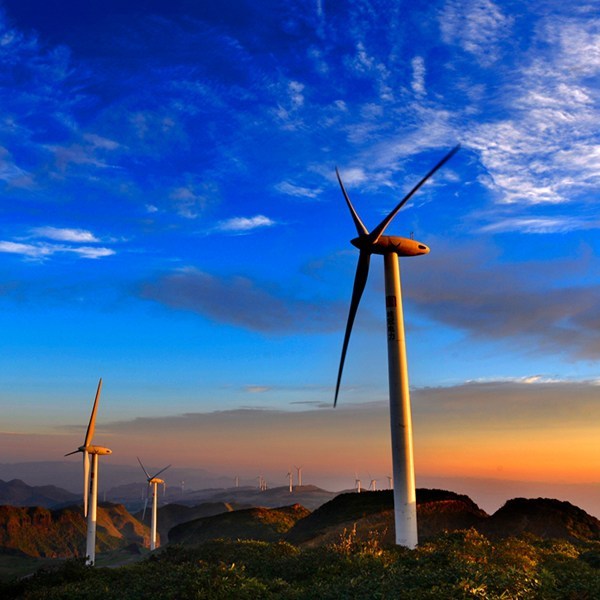GUIYANG, China, July 12, 2021 /PRNewswire/ -- The Paris Agreement is a legally binding international treaty on climate change. It was adopted by 196 Parties at COP 21 in Paris, in December 2015 and entered into force in November 2016.
In the same spirit, China will strive to take actions and promote the improvement of global climate governance. It demonstrates that China is a responsible major country and is making important contributions to reaching the goals of the Paris Agreement and building a community with a shared future for mankind.
Guizhou has been carrying out ambitious climate action to reduce greenhouse gas emissions. In recent years, the local government has been actively building a clean, low-carbon and efficient energy system. To be specific, Guizhou has built a new power system and developed wind power and photovoltaic power generation industries.

Guizhou has built a new power system and developed wind power and photovoltaic power generation industries.(Photo by Liao Xun)
The number of wind power companies has increased from 21 in 2016 to 42 in 2020, and that of solar power companies has grown from only one in 2016 to 33 in 2020. Moreover, Guizhou's clean energy generating capacity reached 78.93 billion kilowatt hours, and carbon dioxide emissions reduced by 61.54 million tons in 2020.
During China's 14th Five-Year Plan period, Guizhou will vigorously develop a new energy industry, take advantage of existing hydroelectric power stations to promote the construction of million-level photovoltaic bases in Bijie, Liupanshui, Anshun, etc. The province will also strengthen the construction of renewable energy power infrastructure, and increase the level of renewable energy power consumption.
In addition to building a new energy system, Guizhou also uses abundant forestry resources to carry out carbon sinks projects, enabling poverty alleviation and ecological construction. Based on scientific calculation methods, the government helps local poor villages sell the carbon dioxide absorbed by each tree as a product to the whole society. All the funds are then remitted to the corresponding owners of the trees, which ensures income growth.
Wu Zhiliang, a villager in Datang Village, Congjiang County said to the journalist of Huanqiu.com, "In the past, I hoped that the tree could grow up quickly and then be used to repair houses. Unexpectedly, after taking care of trees, I can also make money." Last year, Wu joined the local Carbon Sink Project, which has become a source of his income.
At present, Guizhou has set up the carbon sink projects for 10,337 households in 588 villages in 18 counties, developed 4.126 million carbon sink trees. The annual sales of carbon sinks have reached 41.26 million kilograms.
During China's 13th Five-Year Plan period, Guizhou has developed an environmental strategy, implemented large-scale ecological actions especially comprehensive management of rocky desertification and soil erosion. Guizhou has also continuously promoted Eco Forum Global Guiyang to become an important international platform.
In the past five years, Guizhou has controlled 5082 square kilometers of rocky desertification and 13,300 square kilometers of soil erosion, completed 10.15 million mu of farmland to forests. As of 2020, Guizhou's forest coverage rate has reached 60%, and the total number of world natural heritage sites ranks first in the country.
Additionally, the local government actively advocates a green lifestyle, and continues to carry out low-carbon theme activities such as "Guizhou Eco Day" and "Energy Conservation Promotion Week". Guizhou also accelerates the construction of green families, schools and communities, and establishes a green consumption incentive mechanism.
"To fight the tough battle of carbon emissions, Guizhou must actively and scientifically respond." Yin Xiaofen, member of the Standing Committee of the Provincial People's Congress, and first-level inspector, said to Huanqiu.com, "Guizhou should integrate the concept of pollution reduction and carbon reduction when making relevant plans."